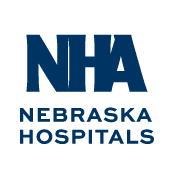EMTALA, Two-Part Series webinar W2050
Course Curriculum
The Emergency Medical Treatment and Labor Act (EMTALA) is a frequently cited deficiency for hospitals. This program will cover the EMTALA chapter in the State Operations manual, including the responsibilities of on-call physicians, the various documentation requirements for staff and the hospital regarding patient care at admission, and all transfer requirements.
Part 1 will address the history of EMTALA, including important cases that led to the EMTALA legislation, the role of the Office of Inspector General (OIG) and the Office for Civil Rights (OCR), and basic requirements of a hospital that accepts Medicare and Medicaid payments.
Part 2 will address on-call physician responsibilities and patient care requirements, such as stabilization and patient transfers.
Learning Objectives
At the conclusion of this session, participants should be able to:
• Discuss why EMTALA is a frequently cited deficiency for hospitals.
• Recall that CMS has a manual on EMTALA that must be followed by all hospitals that accept Medicare.
• Describe the requirement that hospitals must maintain a central log.
• Discuss the hospital's requirement to maintain a list of the specific names of on-call physicians who evaluate emergency department patients.
• Recite the CMS requirements on what must be in the EMTALA sign.
• Describe the hospital's requirements regarding a minor who is brought by a non-parent to the ED for a medical screening exam.
Speaker Bio
Susan Seeley has over 40 years of experience in the health care industry, both as a nurse leader and as a clinical consultant with a focus on patient care services and regulatory compliance. She is experienced in conducting mock surveys and improving client hospitals’ accreditation survey preparedness through on-site education. Susan has helped organizations achieve continuous survey readiness and assists organizations with writing and implementing successful Plans of Corrections for survey deficiencies. She has also assessed quality programs, clinical operations, the structure and function of medical staff committees, and the implementation of peer review quality plans.
Prior to becoming a consultant, Susan spent 19 years as the chief nursing officer for a rural Florida hospital while working part time for the parent company as a clinical consultant for their more than 200 hospitals. She earned her Master of Science in Nursing Administration and her Bachelor of Science in Nursing from Barry University in Miami Shores, Florida. She is a registered nurse and holds an Advanced Nurse Administrator certification through the American Nurses Association.
This speaker has no real or perceived conflicts of interest that relate to this presentation.
Cost: $295 to NHA members for the series (per hospital, no charge for additional lines, recordings available up to 60 days after the webinar)

